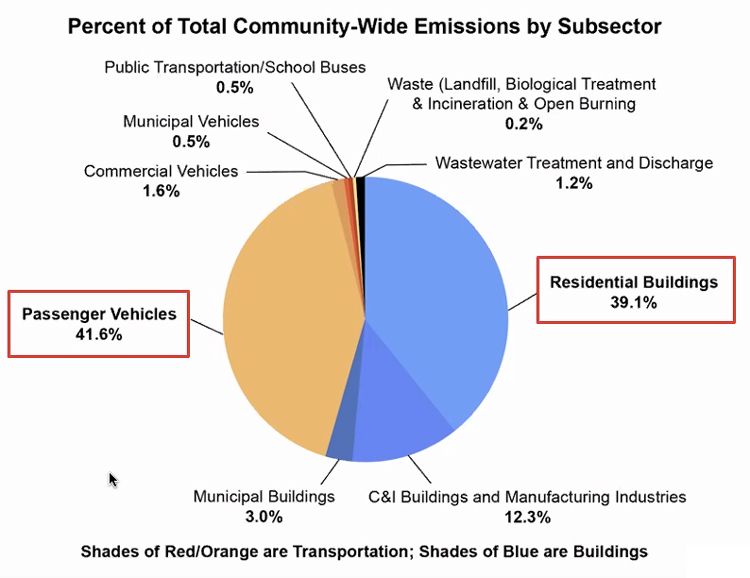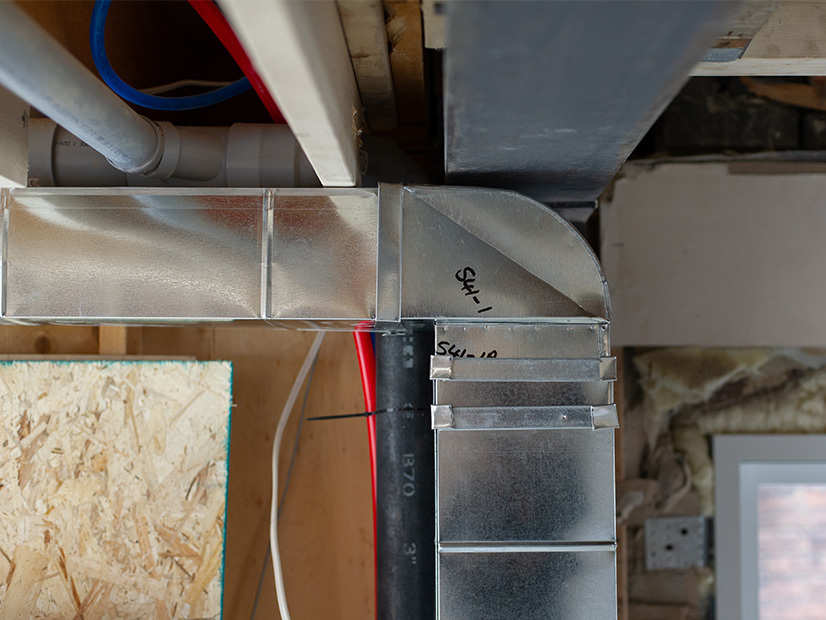The city of Medfield, Mass., released plans last week to target emissions from residential buildings and passenger vehicles with the goal of eliminating or offsetting all greenhouse gases originating in the town by 2050.
Still in the initial stages, the city’s Net Zero Climate Goal was created to apply new state climate laws, including the Next-Generation Roadmap for Massachusetts Climate Policy and Gov. Charlie Baker’s state net-zero goal for 2050, to municipal laws and regulations.
“We are taking what the state is doing to our own level,” said Hildrun Passas, a member of the Medfield Energy Committee, at a webinar presenting the plan last week.
The state’s Clean Energy and Climate Plan for 2030 proposes a statewide high-efficiency energy code for buildings by 2028 and calls for an end to all fossil-fuel heating system incentives by the end of 2024. New climate laws passed by the legislature also implement caps on emissions from different sectors over the next few decades.

To meets those emissions reduction targets, Medfield plans to use a GHG measuring tool from the Massachusetts Metropolitan Area Planning Council. Based on international metrics, the Community Greenhouse Gas Inventory Tool will help Medfield assess where it is now, track whether emission levels drop and by how much.
The measurement tool will also “demonstrate the important role that cities and towns play in tackling climate change,” Passas said.
But with transportation and home heating and cooling as the city’s highest emitting sectors, residents will have to retrofit their homes and purchase electric vehicles in the future. Setting its own action plan will allow the city to take advantage of state and federal funding to help residents “make the transition as seamlessly as possible,” Passas said.
However, a lack of widespread EV charging infrastructure makes the decision to purchase one difficult. In towns like Medfield, public transportation is not available, so the energy committee decided to focus its efforts on converting passenger vehicles to EVs.
“EVs are the future, but consumer choice is not where it needs to be,” said Ken Pruitt, energy manager for Arlington, Mass., at the webinar.
Pruitt helped Arlington develop its own plan to reach net-zero emissions over the past few years. The town’s plan includes making buildings more efficient, electrification and adding renewable energy resources to the grid.
The Medfield Energy Committee is using Arlington’s plan as a model for a community-wide deep energy retrofit campaign and to advocate for improved utility rate designs to increase EV charging infrastructure.
In addition to EV infrastructure, another challenge Arlington faced in enacting its 31 new GHG emission reduction measures was the expensive and time-consuming conversion of natural gas or oil-fired water heating systems. Homeowners need to install costly air ducts in their home, which could force them out for a period of time during construction.
“Massachusetts has thousands and thousands of old homes,” Pruitt said. But the plan still received “overwhelming support for its actions to eliminate GHGs.”
The Medfield committee will be seeking input from residents as it develops the plan over the next few months, followed by a formal public comment period in October, Passas said.
A draft of Medfield’s plan will be released by the end of the year, with a final public comment period in January before the committee submits the plan to the Board of Selectmen for a vote.



